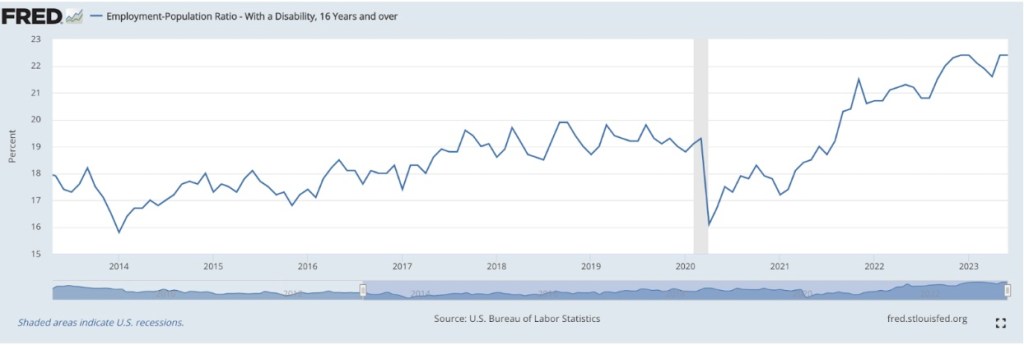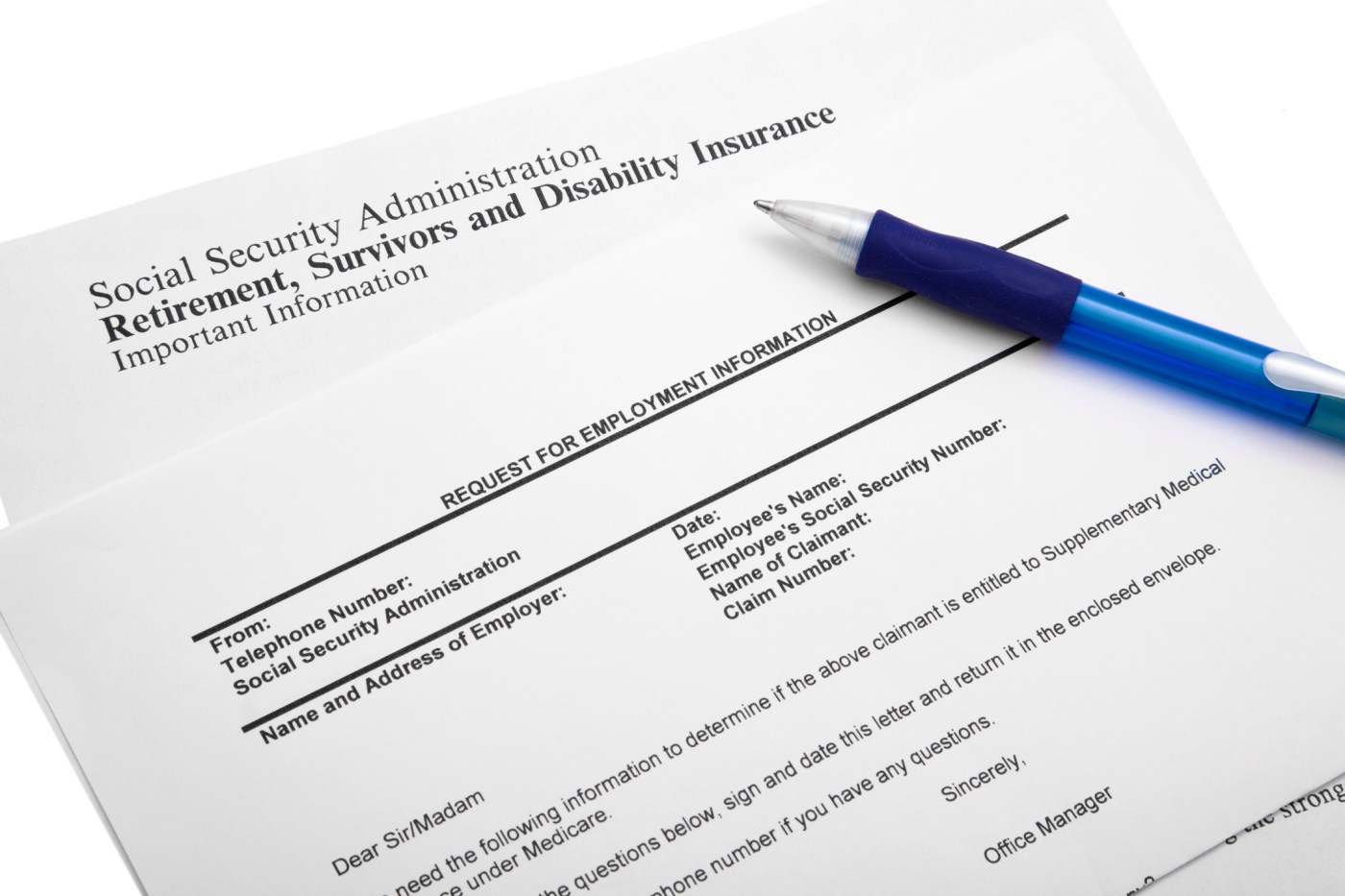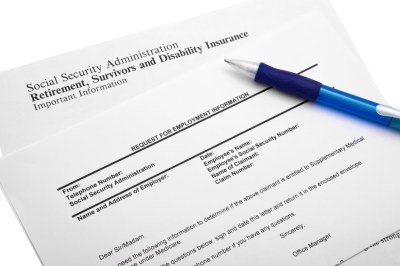Peter St Onge, an economic research fellow at the Heritage Foundation, recently tweeted that disability claims are increasing, the effect of which contributes to a low unemployment rate.
But the graph St Onge cited shows the number of individuals identifying as disabled, not numbers of disability claims.
In reality, the total number of disabled workers and dependents collecting disability benefits actually fell from 9.2 million in 2021, to 8.8 million in 2022 (the last year for which data is available), according to the Social Security Administration. The decline isn’t a new trend: Disability claims have been falling every year since 2013.
Moreover, the total number of applications for both Social Security Disability Insurance (SSDI) and Supplemental Security Income (SSI), the two programs through which people can collect disability, have been declining consistently since 2012. In fact, disability awards as a percentage of applications for SSDI and SSI hit a 20-year low of 27.7 and 30.8 percent, respectively, in 2020, based on data from the Social Security Administration.
St Onge’s claim that “if you're living on disability, you're no longer counted” is missing context.
The unemployment rate is calculated by dividing unemployed people by the labor force (employed people plus unemployed people). However, “unemployed people” is not defined as everyone without a job, but those actively seeking employment and available for work.
While many with disability claims are unable to work and would not be counted among those seeking employment, both SSDI and SSI do allow recipients to work.

Further, Joey Politano, a former analyst at the Bureau of Labor Statistics and current independent economics writer, notes that employment to population ratio among individuals with disabilities is the highest it’s been in a decade.
St Onge’s claim that increased disability claims are contributing to the low unemployment rate is false. The Dispatch Fact Check has reached out to him for comment.







Please note that we at The Dispatch hold ourselves, our work, and our commenters to a higher standard than other places on the internet. We welcome comments that foster genuine debate or discussion—including comments critical of us or our work—but responses that include ad hominem attacks on fellow Dispatch members or are intended to stoke fear and anger may be moderated.
With your membership, you only have the ability to comment on The Morning Dispatch articles. Consider upgrading to join the conversation everywhere.